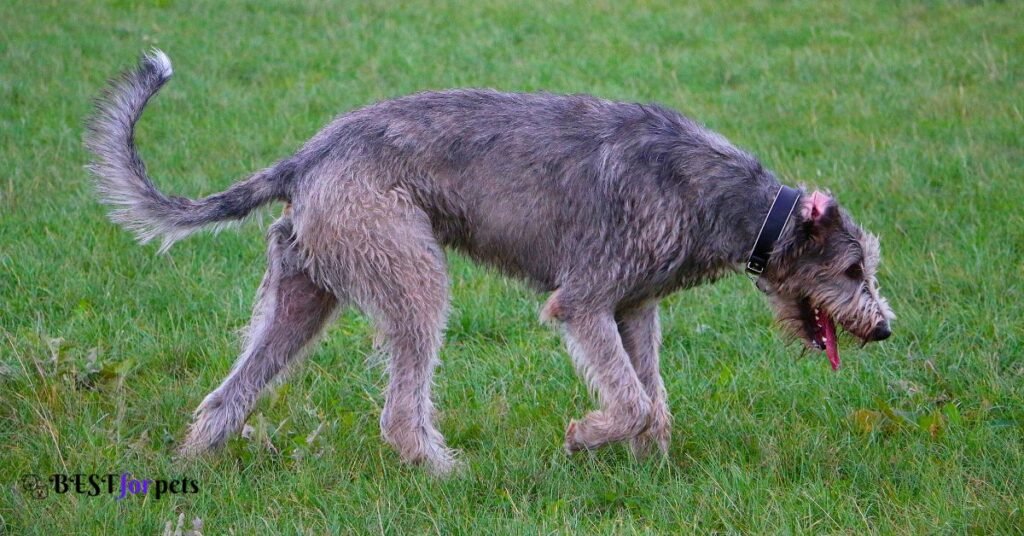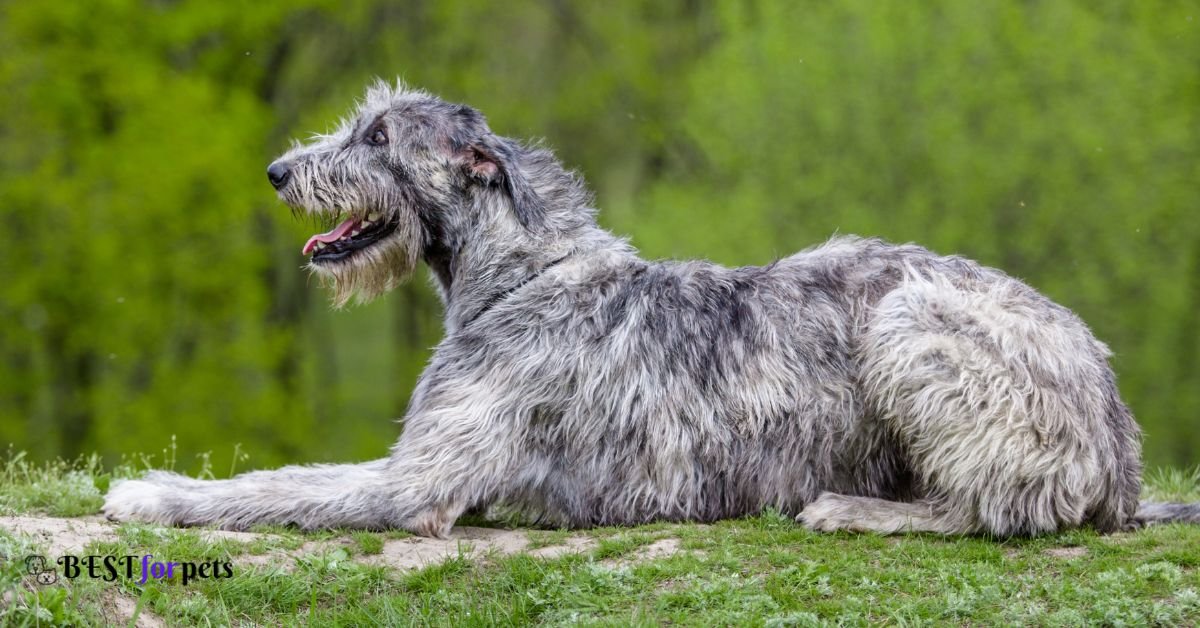//Prices//
Irish Wolfhound Price In India
The price of an Irish Wolfhound in India can vary depending on various factors such as breeder reputation, lineage, location, and demand. On average, Irish Wolfhound Price in India can expect to pay around Rs 40,000 to Rs 1,50,000 or more.

Various Factors That Affects The Price Of Irish Wolfhound
The price of an Irish Wolfhound can vary depending on several factors. Here are some of the key factors that can influence the price:
Breeder Reputation and Quality:
Reputable breeders who prioritize health, temperament, and breed standards often charge higher prices for their puppies. They invest in health screenings, genetic testing, and proper care for the parent dogs, which contributes to the overall cost.
Pedigree and Bloodlines:
Irish Wolfhounds with prestigious pedigrees, champion lineages, or notable ancestry may have a higher price tag. Dogs with documented lineage and recognized achievements in conformation shows or other competitions tend to be more expensive.
Gender:
Typically, male and female puppies are priced differently. Male puppies may be less expensive than females, although this can vary depending on the breeder’s preferences and market demand.
Coat Color:
The coat color of an Irish Wolfhound can influence the price. Certain coat colors, such as rare or desired variations, may be priced higher than others. However, it’s important to prioritize health and temperament over coat color when selecting a puppy.
Geographic Location:
The cost of Irish Wolfhounds can vary based on the region or country. Demand, availability, and local economic factors can influence the pricing in different locations. Transportation costs may also be a factor if purchasing from a breeder located far from your area.
Breeding Rights:
If you are interested in breeding or showing an Irish Wolfhound, breeders may offer puppies with breeding rights at a higher price. This allows the owner to breed the dog in the future, subject to certain conditions and agreements.
An Introduction To Irish Wolfhound
History of Irish Wolfhound:
The history of the Irish Wolfhound dates back to ancient times, with records indicating their existence in Ireland as early as 273 BC. They were highly prized and revered by the Celtic nobility for their bravery, loyalty, and hunting prowess. Irish legends and myths often mention the valor and companionship of these magnificent dogs.
Initially, the Irish Wolfhound was bred for hunting and warfare. They were used to hunt wolves, boars, and even deer, as well as to guard and protect their owners’ homes and livestock. Their imposing size and strength made them formidable adversaries, and they played a significant role in Irish history and culture.
However, the breed’s population declined over the centuries due to various factors, including wars, the decline of large game animals, and societal changes. By the 17th century, Irish Wolfhounds were on the brink of extinction in Ireland.
In the mid-19th century, efforts were made to revive the breed, primarily by Captain George A. Graham and Captain George Augustus Graham. They crossed the remaining Irish Wolfhounds with other breeds, such as Scottish Deerhounds, Great Danes, and Borzois, to help reestablish the breed’s numbers and preserve its characteristics.
The revived Irish Wolfhound gained popularity among dog enthusiasts and breeders, both in Ireland and abroad. Today, they are recognized as a distinct breed and cherished for their noble lineage and gentle nature.
Appearance of Irish Wolfhound:
The Irish Wolfhound is an impressive and majestic breed, known for its large size and elegant appearance. They are considered one of the tallest dog breeds in the world.
Males typically stand at least 32 inches tall at the shoulder and weigh around 140 pounds, although some individuals may be even larger. Females are slightly smaller but still substantial in size. Despite their massive stature, Irish Wolfhounds have a graceful and well-balanced build.
have a long, narrow head with a gently curved skull. Their eyes are dark and expressive, conveying a sense of kindness and intelligence. The ears are small and hang close to the head, adding to their regal appearance. The Irish Wolfhound’s neck is long and muscular, leading to a deep chest and a well-sprung ribcage.
One of the defining characteristics of the Irish Wolfhound is its rough, wiry coat. It provides protection and insulation in various weather conditions. The coat can come in different colors, including gray, brindle, fawn, and red. Despite their coat’s wiry texture, Irish Wolfhounds have a softer undercoat.

Irish Wolfhound Temperament and Activities:
The Irish Wolfhound is renowned for its gentle and affectionate temperament. They are known as “gentle giants” due to their calm and patient nature. These dogs form strong bonds with their families and are particularly good with children, often displaying remarkable patience and tolerance.
While they have a friendly and amiable personality, Irish Wolfhounds can also be somewhat reserved with strangers. However, they rarely show aggression without cause, as they are generally well-mannered and composed.
Irish Wolfhounds are not typically aggressive watchdogs, as their friendly disposition often extends to strangers once properly introduced. Nevertheless, their sheer size and deep bark can be a deterrent to potential intruders.
Despite their history as hunting dogs, Irish Wolfhounds have a moderate activity level. They enjoy regular exercise but are not overly demanding in this regard. Daily walks, along with opportunities for free-running in a safe and enclosed area, are usually sufficient to meet their exercise needs.
Irish Wolfhound Personality and Behavior:
The Irish Wolfhound is known for its gentle, affectionate, and friendly personality. They are often described as sweet-natured, patient, and even-tempered. These dogs are incredibly loyal and form deep bonds with their families, often becoming devoted and gentle companions.
Despite their imposing size, Irish Wolfhounds tend to be gentle and sensitive dogs. They are known to be great with children and other pets, displaying a natural affinity for getting along with others. They are generally tolerant and patient, making them well-suited for households with multiple pets or children.
Irish Wolfhounds have a calm and dignified demeanor, often carrying themselves with grace and elegance. They are not typically prone to excessive barking, although they may alert their owners to potential threats or strangers.
While they are generally friendly with strangers, Irish Wolfhounds can be somewhat reserved and may take their time to warm up to new people. Early socialization is essential to ensure they grow up to be well-rounded and confident dogs.
Frequently Asked Questions
Are Irish Wolfhounds good family pets?
Yes, Irish Wolfhounds are known for their gentle and friendly nature, making them great family pets. They are generally good with children and other pets when properly socialized.

